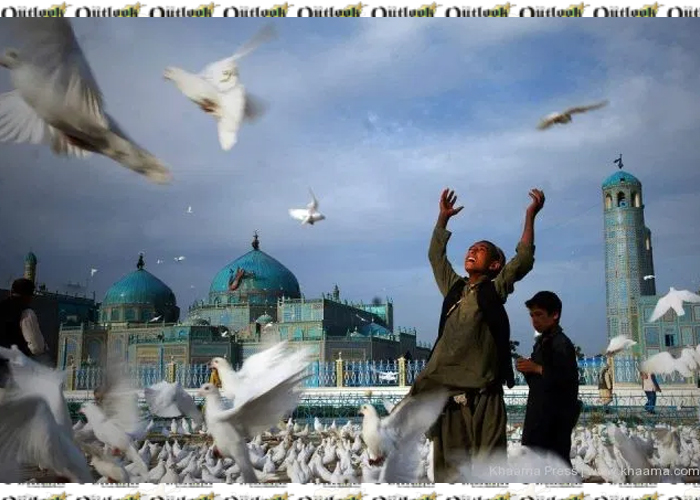We usually define peace in negative sense but what is more discussed in today’s world is positive sense of peace. In positive sense, it does not only signify being free from physical war and disturbance, but also absence of tension and presence of quietness, calmness, tranquility, justice and brotherhood.
Positive peace must start from family level, schools level, community level and then national level. Positive peace is dynamic and long term process based on educational and broad universal values. It can be practiced every day, at all levels of our life. In the other word, positive peace is not merely the absence of war but the presence of justice, presence of law, presence of order, presence of good-will, presence of equal distribution wealth and opportunity, and also presence of good governance and presence of other vital values.
According to Federico Mayor, former director general of the UNESCO, positive peace is defined as a dynamic, participative, long term process, based on universal values and everyday practice, at all levels including the family level, school level, the community level as well as the national level. According to Jawaharlal Nehru, positive peace is a condition of mind brought about by the serenity of soul. Therefore, peace is not merely the absence of war. It is also a state of mind lasting peace can come only through peaceful people. According to Gandhi, peace implies a state of positive and constructive world order where every individual live in co-operation and mutual aid. Peace is a cementing force for the society and the world. Gandhi viewed that truth is more important than peace and peace can be achieved only through truthful means. His vision of peace is based on his philosophy of life that is mutual good will and friendship among all the people.Historically, the term positive peace was invented in the mid- 1960s by John Galtung, a Norwegian peace researcher. Based on his views, the negative conception of peace addresses the immediate symptoms conditions of war and the use and effects of force and weapon, while positive peace involves the elimination of the root causes of war, violence and injustice. Positive peace signifies removal of such structural violence. Thus the negative peace denotes narrow understanding of peace, but positive concept of peace is a broader understanding of peace. Although most countries enjoy form both types of peace, we are deprived of both types. In case of peace with Taliban, there are serious challenges in both negative and positive sense of peace. In negative sense, they crazily kill armed and civilian everywhere in the country. In case of positive sense, they do not believe in social justice, equality, women public participation and other human rights. During the domination of the Taliban regime, there was nothing to define civil rights, freedom, and in the social and cultural areas while no challenges are seen in the mentality and ideology of Taliban.
In case of positive peace with the rest of people, it seems that not only Taliban but also many of us are not ready for positive peace in Afghanistan. Socially, we are ready to have positive peace with our family, neighbors and those who are not pertained to our tribes, race and our religious groups. We are still stuck in superstitious and traditional criteria which not allow the tree of positive peace grow up in the country. In fact, the concept of positive peace which is closely linked with social justice and equality became a kind dream in our society. Although no one is weak in giving enchanting slogan of justice, brotherhood and equality, in practice there is long a distance to reach positive peace in the country. In the other word, the bed and culture of positive peace is not ready in Afghanistan. We have grown up in the context of war and hostility with discriminatory culture in the past. Many of us apparently give the motto of social justice, equality and brotherhood, but they do not believe in these values. Therefore, Afghanistan is ready for a civil war if the international allies irresponsibly leave the country. From one hand, many do not believe in positive peace and equality, attempting to hierarchically manage everything in the country. On the other hand, the hierarchical classifications of the citizens is not acceptable for the rest of the citizens and so the country is extremely vulnerable to bursting into a civil war. Unfortunately, the hierarchy of Afghan citizens is a disease that even the political elites have accepted as unwritten law in the country. Such a view cannot prevent people from increasing dissatisfaction, and then should not expect a sustainable peace in the community.By and large, the social and political culture of Afghanistan is considered as one the most important barriers against positive peace in the country. As long as the culture of tribal and religious superiority is ruling in Afghan society, the bed for fraud, violations of law, discrimination will not be eliminated. Some people may think that a highly centralized government may be appropriate for the multi-ethnic societies such as Afghanistan, but the reality of the 20th century shows that no country will reach advancement without positive peace. There has been enough violence and oppression in the history of Afghanistan but produced no result except destruction, violence and hatred.
So, it should not be expected that authoritarian systems can bring prosperity and sustainable peace in the country. Therefore, no stability and prosperity will come in vulnerable geopolitical location of the country without positive peace.
Home » Opinion » Are We Ready for Positive Peace In Afghanistan?
Are We Ready for Positive Peace In Afghanistan?
| Mohammad Zahir Akbari

